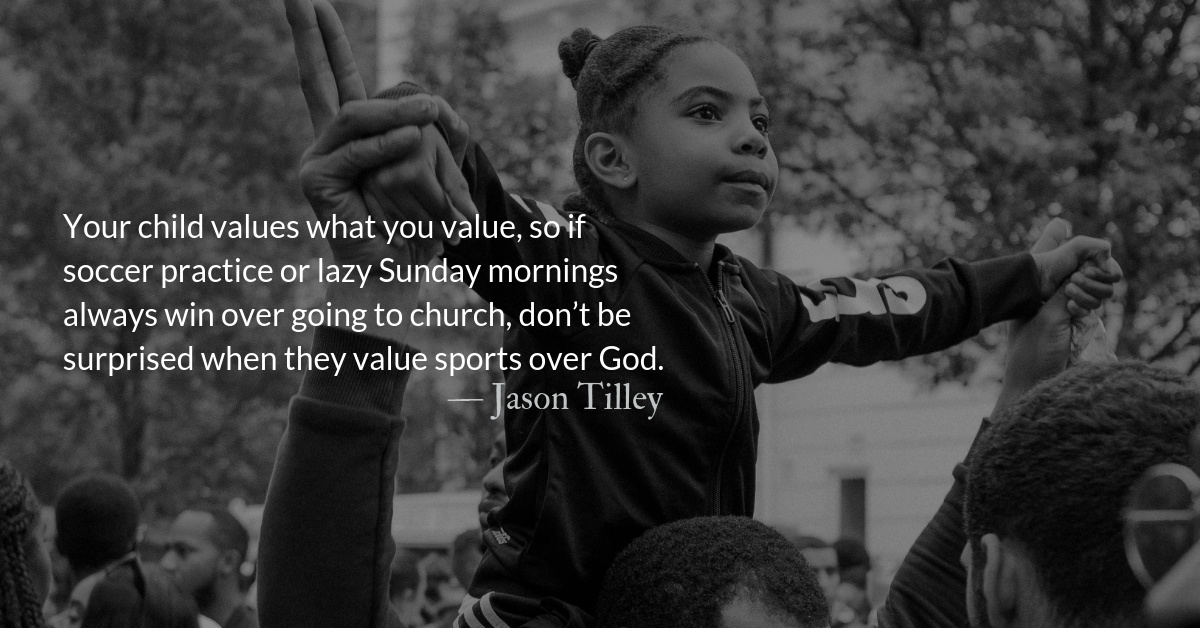Deuteronomy 4.9
Only be careful, and watch yourselves closely so that you do not forget the things your eyes have seen or let them fade from your heart as long as you live. Teach them to your children and to their children after them.
Deuteronomy 6.6-9
These commandments that I give you today are to be on your hearts. Impress them on your children. Talk about them when you sit at home and when you walk along the road, when you lie down and when you get up. Tie them as symbols on your hands and bind them on your foreheads. Write them on the doorframes of your houses and on your gates.
Reflection: Generational Faith Transfer
By John Tillman
Moses, as he commissioned the Israelites to move in and begin to establish the nation, could see that the failure or success of the nation would depend on intergenerational transfer. In 1986, John Paul II, said, “As the family goes, so goes the nation, and so goes the whole world in which we live.” I would, echo that in a smaller way. As the family goes, so goes the church in which we worship.
Whether you are a parent or not, a part of every Christian’s faithfulness is to ensure that intergenerational transfer is enabled and supported by the church.
The following tips are condensed from a blog by Jason Tilley that was written specifically to be shared with parents:
Take Your Own Faith Seriously
You cannot expect your kids to see the effects of the gospel in your life if you are not pursuing God in everything you do. Spend time in God’s word, make prayer an active part of your life. Apply what you are learning to your life. Talk about God and how he influences everything in your life often and out in the open. Your kids can tell if you believe what you say you do.
Have a Plan For Your Child
Be intentional with your child’s spiritual development. Set aside time during the day to engage your child. It could be Bible reading in the morning, prayers before bedtime, a weekly walk where you talk about how God made the world, how he loves us, how he gave his son for us. Make a plan and follow it through.
Make Church Participation A Priority
Active involvement in the church is a powerful force for shaping your child’s spiritual growth. So is not participating. Your child values what you value, so if soccer practice or lazy Sunday mornings always win over going to church, don’t be surprised when they value sports over God. Between the ages of 4 and 14 what a child learns, informs their thinking for the rest of their life.
Participation involves connecting with the living body (read: the people of the church) on a regular basis. This includes (in no particular order) attending services and other programs, serving somewhere in the church, spending time with other believers, and being generous.
*For Jason’s full post see the link above the condensed section. Jason is one of our ministry partners and board members and we work with him to aid and support children’s ministers and parents. You can find more information about Jason and Ministry Accelerator at Ministry Accelerator.org.
Prayer: The Refrain for the Morning Lessons
Everyone will stand in awe and declare God’s deeds; they will recognize his works. — Psalm 64.9
– From The Divine Hours: Prayers for Springtime by Phyllis Tickle.
Today’s Readings
Deuteronomy 4 (Listen – 4:33)
Psalm 86-87 (Listen – 2:26)
This Weekend’s Readings
Deuteronomy 5 (Listen – 4:25) Psalm 88 (Listen – 1:58)
Deuteronomy 6 (Listen – 3:13) Psalm 89 (Listen – 5:29)
Thank You!
Thank you for reading and a huge thank you to those who donate to our ministry, keeping The Park Forum ad-free and enabling us to continue to produce fresh content. Every year our donors help us produce over 100,000 words of free devotionals. Follow this link to support our readers.
Read more about Cultivation Must Be Learned
Spiritual wisdom and knowledge, like agricultural knowledge, must be passed on, with its seeds, from one generation to the next.
Read more about A Generational Lament
For many Millennials and those in Gen Z, prior generations of prosperity and ease have melted into a constant fear of scarcity.











